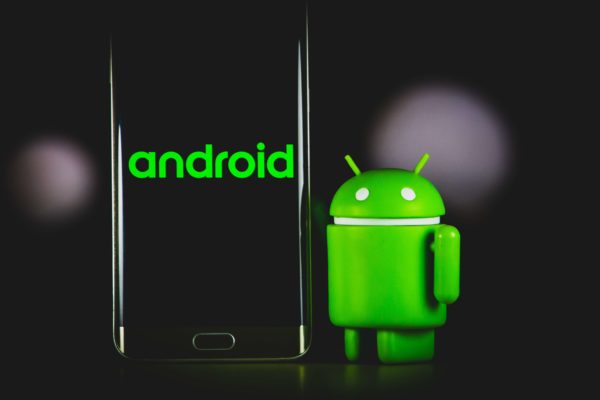Java vs Python: The Most Popular Programming Languages
Python and Java are among the top 3 most popular programming languages according to the TIOBE rating. Both languages have been there for a long time. They are known for stability, cross-platform support, extensive libraries, and a wide developer community.
Given that, Java and Python are perfect for beginners to start their developer careers.
Before you dive into coding, it’s worth figuring out how the languages differ and what they are used for. In this article, we compare Java and Python in terms of readability, language processing, and industry demand.
Python Overview
Python is a high-level programming language that supports dynamic typing, has a garbage collector, and uses an object-oriented approach for small- to large-scale projects. Python has a compact and easy-to-understand syntax which helps to learn the language fast. Look at the code snippet below. This is a simple “Hello World!” program on Python.
print("Hello, World!")
Developers use Python in
Python is extremely flexible and can be used for creating various applications from web apps to data science. Due to extensive frameworks and libraries created for Python, developers can apply reusable modules and cut the time on finishing projects. Businesses leverage Python to reduce expenses on the development process and maintenance. Python is widely used in:
- data analysis and interpretation,
- web development,
- data science,
- machine learning and AI,
- game development,
- the Internet of Things.
Python has a large community and many frameworks are available as open-source projects. It’s also compatible with other programming languages such as C++. Google uses Python for its web crawlers, Instagram for web development, and Spotify and Netflix to improve their recommendation engines.
Java Overview
Java is a statically-typed, object-oriented programming language designed to create cross-platform applications. It has a high level of abstraction but supports some low-level facilities. Java became popular due to its “write once, run anywhere” principle. This means developers can use any device to write a Java program and it would run on any other device that has a JVM (Java virtual machine) installed. The code snippet below demonstrates the “Hello World” program with Java syntax.
public class Main { public static void main(String[] args) { System.out.println("Hello World"); } }
Developers use Java in
As we mentioned earlier, Java is a cross-platform language and it’s also a general-purpose language. Java became so highly applicable, that at some point, installing JVM into chips, devices, and software became common practice for manufacturers. Developers can apply Java to build:
- Desktop and mobile applications,
- software for banks, science projects, and Big Data,
- web server applications,
- backend projects,
- embedded systems,
- industrial programs.
Such giants as Google, Netflix, and LinkedIn use Java for their server-side applications. Moreover, the Google Docs interface was built on Java. Uber uses Java for its mobile app for Android OS. This list of Java applications can go on.
Java also has a wide community and a lot of open-source libraries. It seems hard to learn Java, but with community support, anyone can master the language and find Java job opportunities and start a career in software development.
Python vs Java: Major Distinctions
Python and Java go hand in hand in software development. They are both used for a variety of applications, leverage object-oriented approaches, and have a high level of abstraction. But, how do Python and Java differ? Let’s compare them in a table for convenience.
Java vs Python: Comparison Table
| Python | Java | |
| Readability | Python has a simplified syntax and is easy to read. | Java has a more complex syntax similar to C++. |
| Typing | Dynamic type simplifies code writing but can lead to runtime errors. | Static type makes code wordy, but provides a high level of correctness. |
| Compiling and interpreting | Python requires an interpreter for the code to be understandable for the target machine. | Java compiles to a bytecode that provides better code portability. |
| Industry demand | High | High |
According to the Stack Overflow 2021 survey report, Java developers’ annual wage is about USD 54,000, while Python developers earn about USD 62,000 a year. So, finding Python jobs could be more profitable for you. However, if you feel like digging into Java coding, you’ll still be a developer in high demand. The choice is yours.
Final Thoughts
Although the syntax of Java looks complicated, the language remains one of the in-demand languages for the future. Python and Java always compete and switch popularity places from year to year. Python is perfect for faster and cost-effective development for small projects, while Java provides simpler cross-platform development. Anyway, knowing either Java or Python is beneficial for finding a great job opportunity.
If you want to begin your career in software development, start with Talentica. We simplify job search and select the best open positions that match your skill set.
Faq
Why is Python the most popular programming language?
Python makes code writing easy and fast. It’s a high-level, object-oriented programming language that’s used to build a variety of programs from game development to Big Data applications.
Is Python a scripting language?
Yes, Python is a scripting language. It needs an interpreting program to run the code.
Is Python easier than Java?
Python has a simplified syntax that makes it easier to read and learn in comparison with Java.
Is Java faster than Python?
Because Java is a compiled language, it requires less time to be processed. Python has a simple syntax, but interpretation requires more time to make the code machine-readable.
Are there similarities between Java and Python?
Java and Python are both high-level, multi-purpose, object-oriented languages.
July 14, 2022





